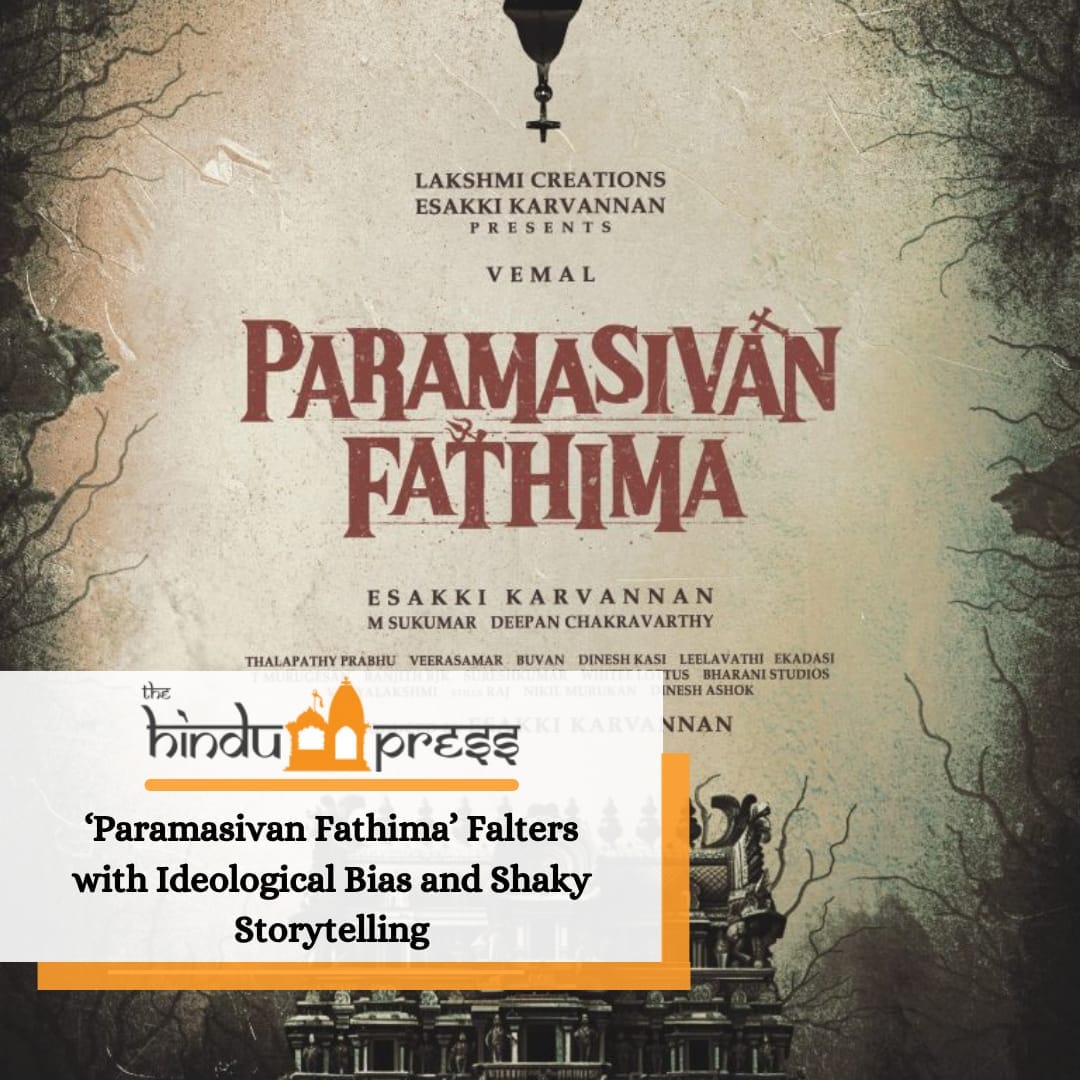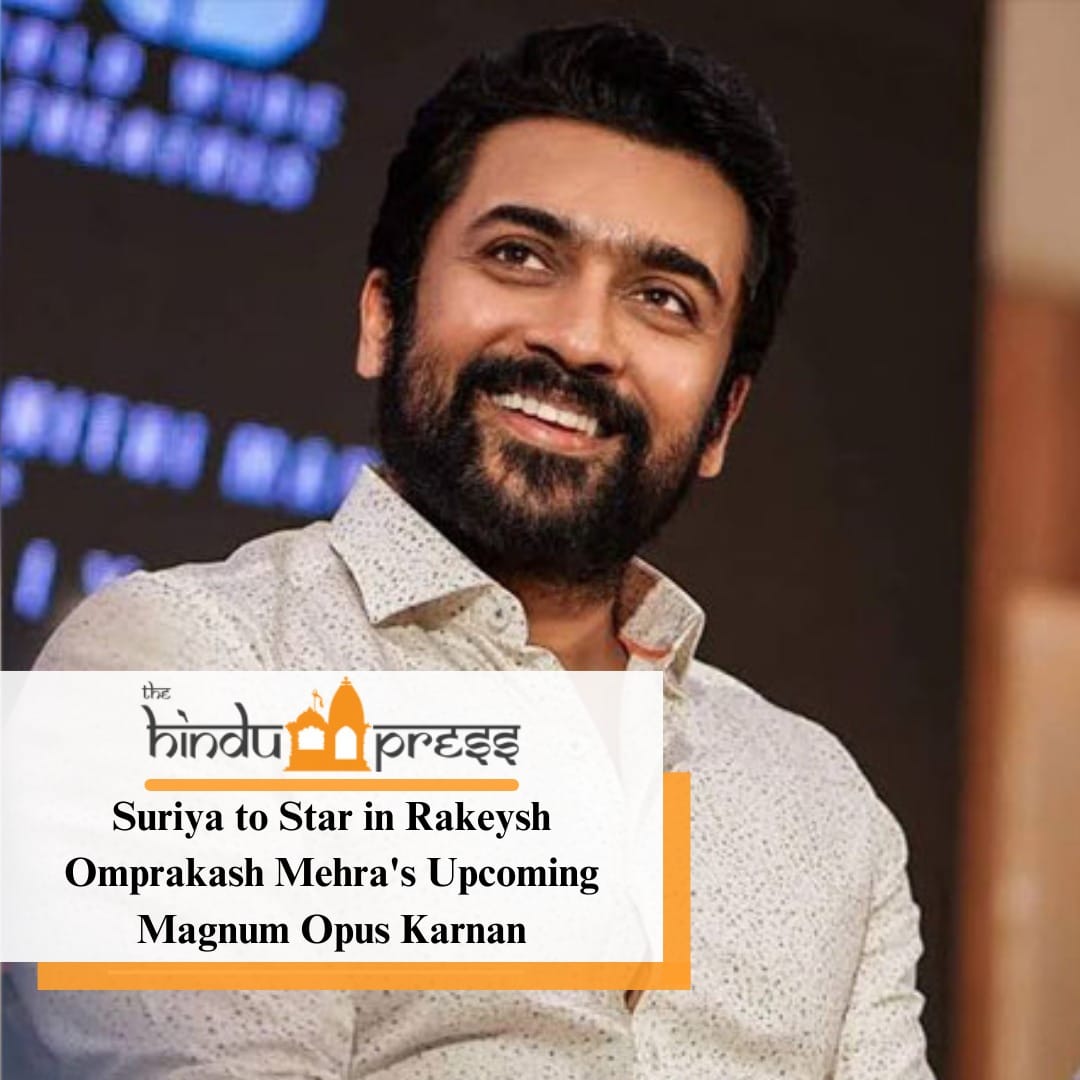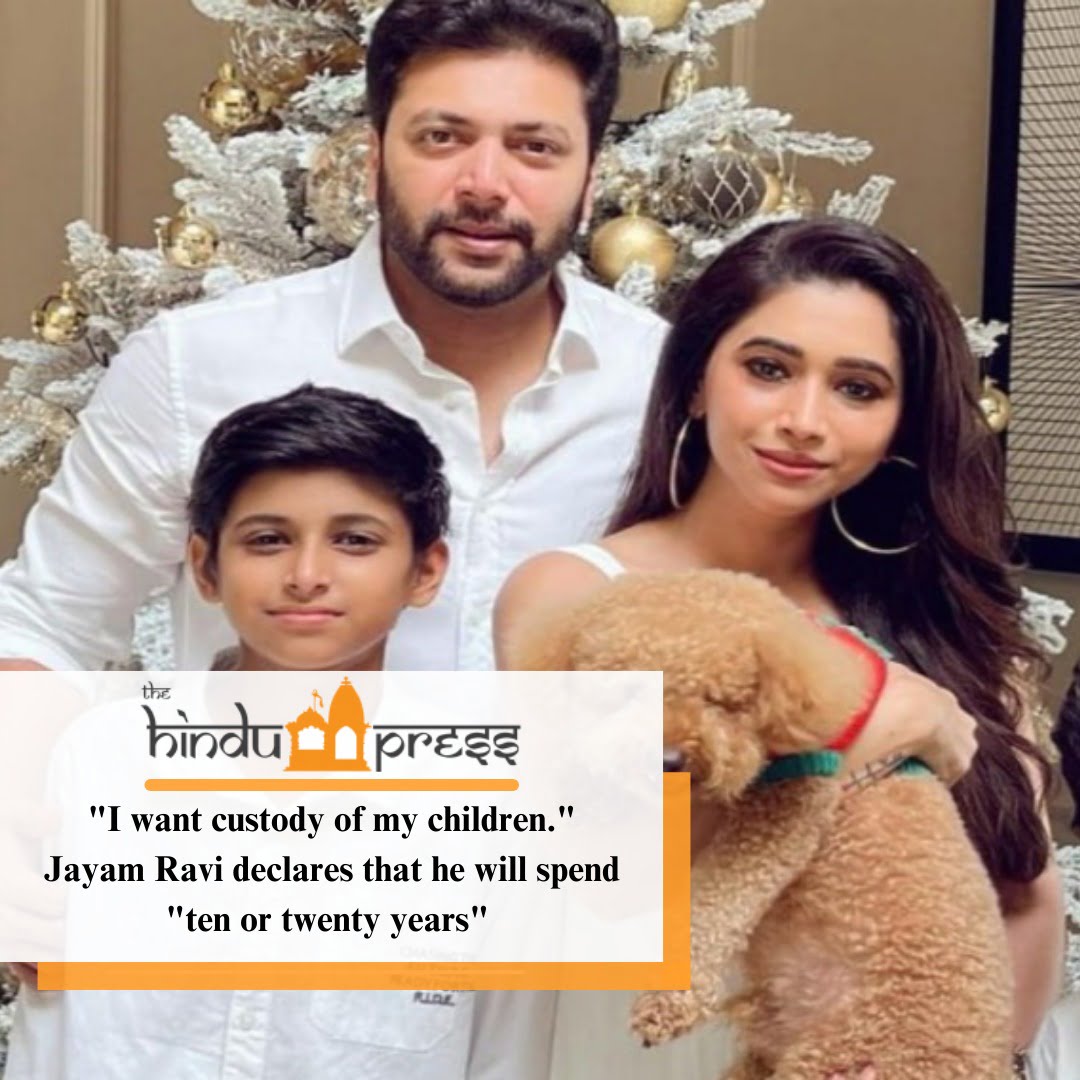By Pavethran Batmanathan,
Paramasivan Fathima, director Esakki Karvannan attempts to weave a social narrative around religious conversions, communal identity, and interfaith tension within a fictional Tamil town. However, despite its ambitious premise, the film collapses under the weight of shallow storytelling, poor characterisation, and a disturbingly one-sided ideological stance.
The story unfolds in Subramaniyapuram, a fictional village divided into two neighbouring towns, Yokobpuram, dominated by Christians, and Sultanpettai, predominantly Muslim. The towns, we are told, split due to rampant religious conversions. Soon, a series of mysterious deaths involving grooms from these towns occurring just before their weddings becomes the central intrigue. Meanwhile, a parallel thread follows Paramasivan (Vemal) and Fathima or Tamilselvi (Chayadevi), hinting at a love story possibly torn apart by social taboos, most likely honour-based violence.
The setup appears to promise a layered exploration of inter-religious dynamics and societal prejudice. Yet, what unfolds over a dragging 140-minute runtime is an uninspired and poorly structured narrative that neither commits to its mystery nor fully explores the emotional core of its characters.
Instead, the film chooses to posture itself as a cautionary tale against religious conversion, specifically targeting Christianity. The messaging is laced with condescension, labelling converts as “rice-bag converts,” a derogatory term used to imply faith is traded for material gain. This narrative choice not only oversimplifies a deeply complex social issue but also brushes aside critical factors like poverty, unemployment, caste oppression, and systemic neglect, which often drive individuals toward new belief systems in search of dignity and survival.
Moreover, Paramasivan Fathima presents a world where characters are consumed entirely by religious concerns, as if no other human experience, be it love, struggle, or aspiration, exists in their lives. It paints a regressive and inaccurate image of rural Tamil Nadu, ignoring modern realities and more pressing social challenges like caste-based discrimination, which remains a primary driver of religious conversion in the state.
Strikingly, this film is a tonal departure from Karvannan’s previous work, Tamil Kudimagan, which bravely condemned casteism. In contrast, Paramasivan Fathima sidesteps caste altogether, conveniently avoiding introspection within Hinduism while amplifying the supposed ills of Christianity. This lack of balance and self-awareness strips the film of any moral credibility it may have aimed for.
Adding to its ideological missteps is the film’s failure on the cinematic front. Performances are wooden, the dialogue is often expository and preachy, and the screenplay is riddled with jarring tonal shifts including an awkward pivot into horror in the final act. Rather than allowing the narrative to evolve organically, it appears the script was shaped to serve a pre-decided political message, turning characters into mouthpieces rather than believable individuals.
The film also mishandles themes of hunger and poverty, dismissing the legitimacy of seeking food or livelihood as reasons for conversion. It fails to ask the more human question, what responsibility does a community have toward its own suffering members if outsiders are the only ones extending help? It is here that the film’s moral compass seems most lost. The glorification of religious pride over basic human empathy feels especially tone-deaf in a world where access to food, shelter, and dignity is still a daily struggle for many.
Religious compassion, as shown in historical tales like Krishna’s generosity toward his impoverished friend Kuselan or Jesus feeding thousands with just five loaves and two fish, has always been about empathy, not exclusion. Mahatma Gandhi, inspired by devotional poetry like Vaishnav Jana To, often reiterated that religion must serve people, not control them.
Unfortunately, Paramasivan Fathima does not uphold such ideals. Instead, it frames its narrative in an “us versus them” dynamic, promoting suspicion rather than understanding. It fails to critique fanaticism within all faiths equally and misses a chance to highlight the shared human experience at the heart of spirituality.
In the end, Paramasivan Fathima is neither a compelling drama nor a responsible social commentary. It is a misfire that uses cinema as a soapbox for divisive rhetoric rather than a medium for honest dialogue. Both in message and in form, the film leaves much to be desired, making it one of the more regrettable cinematic entries in recent times.




